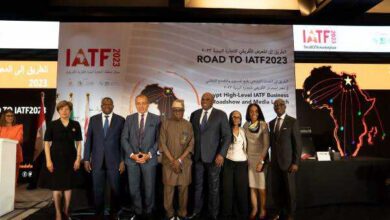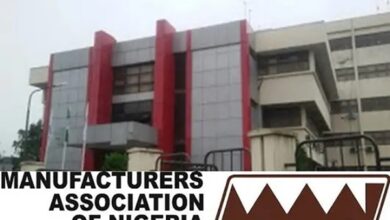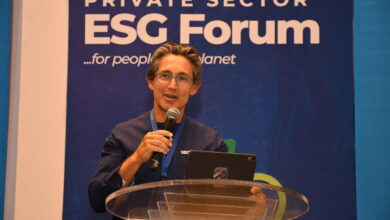
The Assets Management Corporation of Nigeria (AMCON) was created by the Federal Government through the Central Bank of Nigeria (CBN) in 2010 to prevent commercial banks from collapsing due to huge toxic loans in their books.
It was mandated to take over the bad debts from the banks and pursue the obligors to repay their various credit facilities. But over a decade after it was created, the corporation has only succeeded in recovering N1.4 trillion and some forfeited property, while a whooping N5 trillion remains outstanding.
The situation is exacerbated by several litigations at different stages in various courts across the country. In this analysis, JOHNMARK UKOKO wonders whether the corporation will be able to ultimately deliver its core mandate, considering that it now has less than five years to wind up.
The Assets Management Corporation of Nigeria (AMCON) was established in 2010 during the administration of former President Goodluck Ebele Jonathan through the Central Bank of Nigeria (CBN) with Mustapha Chike Obi as its pioneer Managing Director and Chief Executive Officer.
Its core mandate was to protect nine deposit money banks (DMBs) from going under due to huge toxic debts in their books after the CBN carried out due diligence on them and declared them ‘stressed.’ The CBN then injected hundreds of billions to make the banks remain operational, until they were acquired by ‘healthier’ banks.
AMCON was then mandated to takeover all the bad debts in the books of the banks, with a view to recovering the bad debts for the country. Its establishment was also necessitated by the fact that many rich Nigerians obtained huge loans from the banks with the mindset of not repaying, as and when due. Curiously, such people simply walk to other banks to obtain more loans until the bad loans almost sank the banks.
Such was the profligacy at that time! As of when the corporation was established in 2010, the total toxic debts inherited by AMCON amounted to over N5 trillion, which was about the size of Nigeria’s yearly budget at that time. However, 12 years after the establishment of the corporation, most of the notorious obligors in the financial sector that necessitated the establishment of the corporation have continued to obtain more loans without fulfilling their financial obligations to the banks.
Read Also: PIA: Deputy Senate President seeks Women’s inclusion in host communities fund utilization
The notorious and super rich Nigerians have been largely emboldened by the country’s legal system and the unpatriotic attitude of some lawyers, who keep moving from one bank to another to avoid repayment of their debts. Notwithstanding, findings have shown that some of the toxic credit facilities that prompted the Federal Government to establish the corporation in the first place had existed for over two decades.
While some of the legal battles by the banks to recover their credit facilities also lasted several years before they are adjudicated upon by the courts. Rather than honour the terms of their loan agreements and repay their facilities, some of the powerful debtors, who willingly approached the banks to obtain loans, would rather assemble several Senior Advocates of Nigeria (SANs) to plead their cases in the courts.
Worse still, the coming on stream of AMCON to take over the bad debts of commercial banks and later some other firms, has not changed the situation, as the local obligors have continued to approach the courts.
The plethora of court cases and the attitude of most high court judges, who are fond of giving conflicting injunctions and rulings, are giving not only the board and management of the corporation, but also the National Assembly very tough times.
To that extent, the National Assembly Committee on Banking and Currency recently assembled in Lagos to brainstorm on the challenges of the several court cases against the corporation and sometimes the various conflicting court rulings by courts of the same jurisdictions.
Chairman, House of Representatives Committee on Banking and Currency, Hon. Victor Nwokolo, said apart from the challenges the courts were giving the corporation, there were also problems emanating from government Ministries, Departments and Agencies (MDAs), which have impacted negatively on the actualisation of AMCON’s mandate.
Nwokolo threatened that the committee would soon summon heads of the MDAs to ensure that the corporation achieved its mandate, adding that the National Assembly would, as a matter of urgency, summon the leadership of the various committees over- seeing the different agencies to investigate why the interagency committees on recovery of the huge outstanding debts owed AMCON had not yielded the desired results.
He disclosed that in September 2019, Vice President Yemi Osibajo inaugurated an inter-agency committee to speedily resolve the challenges of recovering the over N5 trillion AMCON debts and tasked its members to deploy their expertise in the assignment to ensure that AMCON met its mandate within reasonable timeline.
Members of the committee include heads and representatives of the Independent Corrupt Prac- tices and other Related Offences Commission (ICPC), Economic and Financial Crimes Commission (EFCC) and Nigerian Financial Intelligence Unit (NFIU), Central Bank of Nigeria (CBN), Nigeria Deposit Insurance Corporation (NDIC) and the Federal Ministry of Justice, among others.
The committee, headed by Chairman of ICPC, Prof. Bolaji Owasanoye, was expected to review the status of the huge debts owed AMCON, deliberate on practical, legal and other strategies for recovery of the outstanding debts.
At a retreat with the theme: Assets Recovery As Tool For Enhanced Growth And Stability Of The Banking Sector: Sustaining The Impact And Bridging The Challenges Of AMCON, Nwokolo expressed sadness that government agencies were working at cross purposes rather than collaborating to ensure that they support the Federal Government in its economic recovery efforts.
His words: “We cannot continue like this, because we are answerable to Nigerians and our constituencies as lawmakers. They will hold us accountable, if we fail to take decisive actions that would help AMCON to recover the huge outstanding debts.
“In saner climes, MDAs are supposed to work together to ensure that nobody shortchanges the Federal Government, but from the reports we get from AMCON, it is obvious that the corporation is facing frustration from not only the obligors, but also the judiciary, as well as the MDAs. There is no reason why that should happen in a decent country.”
He promised that the National Assembly would, in no distant time, organise another retreat, which would involve about six critical stakeholders to discuss in great details the strategies to be adopted in ensuring that Nigeria recovers its money, which some obligors owe the country, add- ing: “Yet they are hiding under all manner of tricks to evade repayment.”
In spite of the lawmakers’ pain and frustration, he commended the leadership of AMCON, led by the Managing Director and Chief Executive Officer (MD/CEO), Ahmed Kuru and the board for their resolve to persistently chase the debtors, some of whom feel they are bigger than the country. He, however, restated the fact that given that the AMCON Act has been amended and already signed into law by President Muhammadu Buhari, the National Assembly will continue to strengthen the laws of the country for greater enforcement and implementation.
Nwokolo said enforcement has become critical, given the tactics of the debtors, which has constrained the corporation from achieving optimum results, especially since public funds were used to buy the loans that helped prevent system collapse of the banking sector at the time AMCON was created in 2010.
In his presentation, Kuru, disclosed that till date, the corporation had recovered about N1.4 trillion, which comprises cash of N681 billion, forfeited property, N279 billion forfeited shares and N116.9 billion from Polaris Bank after the bank’s acquisition.
Kuru, who was represented by the corporation’s Group Head, Assets Management Directorate, Matthew Coker, told the lawmak- ers that despite the special powers provided in the AMCON Act, the corporation was still struggling with the implementation due to the country’s judicial system.
He said the corporation’s recovery process at this point majorly depended on the judiciary through obtaining possession orders or orders for sale of forfeited property.
“The slow pace of our court processes and sometimes, conflicting orders by the courts, especially at the Federal High Court, which is AMCON’s court of first instance, frustrates recovery processes. There are also delays in obtaining dates in court to hear AMCON matters, while the courts do not enforce deposit of judgment sum as provided in the Act.
“Some of the obligors are still active contractors of the government. They carry out businesses with government, with debtor companies or other pseudo names. Also, the big time obligors still manage to obtain more credit facilities, while they have not paid their initial loans,” he lamented.
Some of the revelations by Nwokolo and Kuru are sad and shocking, to say the least. How can government MDAs work against AMCON in its bid to realise its mandate? Why should government give contracts to obligors, who have refused to pay the debts owed the country and still work freely on the streets?
Why should the judges of equal jurisdiction (Federal High Court) give conflicting orders on the same cases? If it takes AMCON almost 12 years to recover N1.4 trillion, how many years will it take to recover N5 trillion? While some sections of the government are already pushing for extension of AMCON lifespan, the slow pace of its recovery process may take much longer to be achieved.
One verifiable fact is that sign- posts are seen of hotels, factories, compounds and commercial places under receivership by AMCON in every nook and corner of the country, which the courts have handed over to the corporation. Following the development, the question agitating the minds of most Nigerians remains whether with the various challenges highlighted by Nwokolo and Kuru, the corporation ever be able to deliver its mandate?
The courts and judges remain crucial to the successful tackling of some of the issues hindering the actualisation of AMCON’s mandate, which prompted the corporation to organise a retreat for high court judges late last year.
At the event, President of the Federal High Court judges, Justice John Soho, promised to work on his colleagues to be up and doing in supporting AMCON in its task, but it is sad that almost a year after Justice Soho’s assurances, the situation has not changed. At the end, it will amount to waste of funds, time, energy and logistics if AMCON fails to deliver its core mandate.




